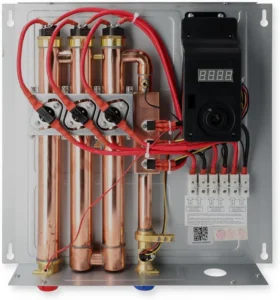Water heating accounts for approximately 18-20% of the average household’s energy consumption, making it the second-largest energy expense after heating and cooling. As homeowners increasingly seek ways to reduce utility bills and environmental impact, smart water heaters have emerged as a game-changing solution that combines cutting-edge technology with practical energy savings.

The Evolution of Water Heating Technology
Traditional water heaters operate on a simple principle: maintain a tank of hot water at a constant temperature, regardless of actual demand. This approach, while reliable, leads to significant energy waste through standby heat loss and inefficient heating cycles. Smart water heaters represent a fundamental shift in this paradigm, introducing intelligence and connectivity that transforms how we heat water in our homes.
Modern smart water heaters leverage advanced sensors, machine learning algorithms, and Wi-Fi connectivity to optimize performance in real-time. These systems learn household usage patterns, predict demand, and adjust heating schedules accordingly, resulting in energy savings of 10-15% compared to conventional units.
Key Features Driving Efficiency
Adaptive Learning Technology Smart water heaters continuously monitor usage patterns, identifying when hot water is typically needed throughout the day. By learning these patterns, the system can pre-heat water just before peak demand periods and reduce heating during low-usage times, such as overnight or when the house is empty.
Remote Monitoring and Control Through smartphone apps, homeowners can monitor their water heater’s performance, adjust temperature settings, and receive maintenance alerts from anywhere. This connectivity enables users to make immediate adjustments based on changing schedules or unexpected events, preventing unnecessary energy consumption.
Leak Detection and Prevention Advanced sensors can detect even minor leaks before they become major problems. Early detection not only prevents water damage but also eliminates the energy waste associated with continuously heating replacement water.
Grid Integration and Demand Response Many smart water heaters can participate in utility demand response programs, automatically adjusting their operation during peak electricity demand periods. This grid integration helps stabilize the electrical system while providing homeowners with financial incentives for their participation.
Energy Efficiency Benefits
The efficiency gains from smart water heaters extend beyond simple temperature control. Heat pump water heaters, when equipped with smart controls, can achieve efficiency ratings of 300-400%, meaning they produce three to four times more heat energy than the electrical energy they consume. When combined with intelligent scheduling and usage optimization, these systems can reduce water heating costs by 30-50% compared to traditional electric resistance units.
Smart gas water heaters also offer significant improvements, with condensing technology and modulating burners that adjust flame size based on demand. These features, combined with smart controls, can achieve efficiency ratings above 95%, a substantial improvement over older units that typically operate at 60-80% efficiency.
Integration with Home Energy Systems
Smart water heaters don’t operate in isolation – they integrate seamlessly with broader home energy management systems. When paired with solar panels, these units can be programmed to heat water primarily during peak solar production hours, maximizing the use of free renewable energy. Time-of-use electricity rates become more manageable as homeowners can schedule heating during off-peak hours when electricity costs are lowest.
Integration with smart home platforms allows water heaters to communicate with other appliances and systems. For example, a smart water heater might receive signals from occupancy sensors to enter vacation mode when the house is empty for extended periods.
Future Developments and Considerations
As technology continues advancing, we can expect to see even more sophisticated features in smart water heaters. Predictive maintenance using AI will help prevent failures before they occur, while advanced materials and insulation will further improve efficiency. For homeowners considering an upgrade, consulting with professionals experienced in modern plumbing systems is essential – resources like All About Plumbing can provide valuable guidance on selecting and installing the right smart water heating solution for specific needs.
The transformation of water heating technology represents more than just incremental improvement – it’s a fundamental reimagining of how we approach home energy efficiency. As utility costs continue rising and environmental concerns grow, smart water heaters offer a compelling combination of convenience, savings, and sustainability that makes them an increasingly attractive investment for forward-thinking homeowners.


